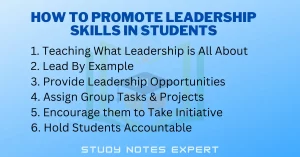The leadership realm has gained immense traction in the contemporary world. Almost every industry and sector today is recognizing the importance of effective leadership. From the medical field, education, hospitality, and politics to the corporate realm, leadership cuts across all spheres.
However, leadership today has become more challenging than ever before. Many people in leadership positions are unclear about what true leadership really is. True leadership goes beyond setting directions and commanding people “to do”. It involves inspiring them towards a common goal and raising up other reliable leaders.
Apart from the unprecedented event of the 2020 pandemic, global challenges such as climate change, and economic woes are significant factors in pointing to the type of leadership that the future needs. Many challenges triggered by the pandemic and its aftermath can be considered as gauging elements for leadership efficacy. Unless students and professionals understand the problems of the modern world, it will be difficult for them to make the necessary change when they become leaders. So, how can we promote leadership skills in students?
6 Excellent Ways to Promote Leadership Skills in Students
It should be noted that there is a range of leadership skills and developing them throughout school and personal life can help students become ideal leaders. Some of the leadership skills that teachers and educators can cultivate in students include communication, critical thinking, and independent thinking among others. Other essential leadership skills that can make a difference in one’s leadership include emotional intelligence, honesty, and problem-solving skills. Fortunately, there are many ways through which these skills can be fostered in students and they include:

1. Teaching What Leadership is All About
Some people think that leadership is about enjoying authority and power. To them, it is also about satisfying their ambition and needs. Yet true leadership depending on several fields, is about serving, inspiring, and making a difference. However, people’s perception of leadership can be due to several factors. First and foremost, many are unaware of what leadership is all about and others were unguided on how to become quality leaders.
With that, educators can promote true leadership skills by helping students understand the different leadership styles and the type of leaders that the modern world needs. It is also beneficial to guide students on how to become good leaders and that can happen by leveraging the different reflection models. Self-introspection can help students understand their leadership potential and their weak spots so that they can work on them.
2. Lead By Example
Leading by example is one of the best practical ways to teach leadership. Whether it’s in the classroom, workplace, or community, hands-on experiences can make a huge difference in the quality of future leaders. Generally, leading by example is a guide that can stick with students. For example, if the matter is about time management, coming on time as a teacher is very essential.
It helps them understand that action is better than words. In addition, it will show that values and self-discipline are what make a leader. Besides teaching leadership to students, leading by example is one of the best approaches to classroom management. Students will know what is expected of them and this can reduce disciplinary issues. Many leaders today aren’t reliable because they say and do the opposite. This causes confusion and also affects one’s leadership outcomes. So, ensure to lead by example for students to understand what is expected of a leader.
3. Provide Leadership Opportunities
One of the best ways to foster leadership skills in students is by extending a chance for them to lead while still in school. Earlier exposure to leadership positions and responsibilities can offer an exact picture of what leadership is all about. It can help students to understand what is expected of them as leaders and the type of services that a leader does.
Some of the best leadership opportunities that students can engage in include celebratory events, classroom monitoring, prefectorial roles, and club leadership among others. These responsibilities can strengthen students’ leadership muscles through the challenges that they may encounter.
4. Assign Group Tasks & Projects
One of the best active teaching and learning techniques is group assignments. Group projects and tasks normally involve collaboration, division of work, listening, and reporting. These are also some of the most important job skills for many positions in the professional realm. When students are exposed to group projects, it allows them to develop additional leadership skills. For example, they can distribute the work among themselves and ensure to meet deadlines.
Apart from that, they learn to set goals, follow the decided guidelines, and stay accountable. Additionally, these partnerships can help students improve their interpersonal skills, emotional intelligence, and social skills. In the long run, students can become more self-aware and resilient which helps them become better leaders.
5. Encourage them to Take Initiative
Some students have leadership potential but are unaware of it. They can become ideal leaders, but require a push-up. As a teacher, parent, or guardian, you ought to know that not all are born leaders, but leaders can also be made. Encouraging students to take initiative for example; to contest for a leadership position or role in school can help them develop influential leadership skills.
Pushing students to take initiative, for example, to speak in public, or recite a poem for a team can enhance their confidence and self-esteem. This can help them become open to leadership opportunities. Besides that, they will also learn to view challenges as opportunities. Many students can become good leaders, however, they are limited by fear of failure and the associated risks.
6. Hold Students Accountable
Holding students accountable is one of the best approaches to instilling a sense of responsibility in them. Generally, accountability means being answerable to personal decisions and actions. Knowing that one must offer an answer for his or her actions leads to intentional leadership. Many of the leaders in positions of authority lack a sense of direction because they aren’t accountable.
They set their own rules and are unintimidated by the people they serve. However, when students pass through educational life knowing that leaders must be accountable, this helps them perform exceptionally. So as a teacher, try to hold learners accountable for their actions or decisions. That can even be due to their misconduct, failure to submit an assignment on time, or influencing others in the wrong direction.
Conclusion
Student life is the best phase to cultivate leadership skills and for that, educators and parents have a huge role to play. When students are mentored on the responsibilities of a leader, this can improve the quality of leaders of future generations. Besides that, it will help students become the best leaders they can ever be.

